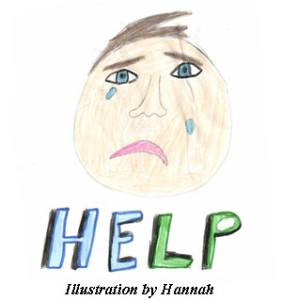 With school starting all across the nation, my posts have been devoted to calling attention to kids who need “a helping hand” as they begin the new school year. If you missed my previous posts on those kids, click onto these links: The New Kid in School, Kids With Special Needs, and Kids Who are Overscheduled.
With school starting all across the nation, my posts have been devoted to calling attention to kids who need “a helping hand” as they begin the new school year. If you missed my previous posts on those kids, click onto these links: The New Kid in School, Kids With Special Needs, and Kids Who are Overscheduled.
As the school year begins, it saddens me to think that some of our children are returning to school this fall who are grieving a loss in their lives since school ended for the summer. I am reminded of a fourteen year old young man who lost his mom.
Still other children are entering a new school year having had to face the divorce of their parents. Others are entering the school year due to a move to a new location, which can also be a terrifying experience for a child.
Sadly for these children, the excitement of a new year of school is just not there, as they are trying to make adjustments to a new life because of their loss.
So, my post today is to bring awareness once again, as I have been trying to do this past year, of what loss means and how to help a child in grief. I’d like to recap a few things I have written about in my efforts to help hurting children for those of you in are new to my site.
Let’s start off with the definition of a loss.
Loss, a separation from someone or something of value to you, occurs in many different shapes and forms, and carries with it hurt and pain.
For example:
- being bullied at school or in the neighborhood
- not making the football team for the coming year
- a friend saying: “I don’t want to play with you anymore”
- being sick or the illness of a loved one
- having a family member in jail
- having a family member addicted to drugs or alcohol
- experiencing natural disasters
- witnessing school violence
Oh, how I wish that you and I could protect our children from losses and the pain and hurt that accompanies it. But, unfortunately we can’t because —
losses are a normal part of life, even in the lives of children.
For the most part, we know very little about losses or what to do with them when they occur. Children, in particular, are often over-looked during a time of loss and the pain that accompanies it. Why?
- Sometimes adults, unintentionally, get caught up in their own pain and they fail to recognize that their child is also hurting.
- Often times, a child’s pain is overlooked because children do not express their pain in ways adults recognize.
- In his book, Recovering From Losses in Life, Norman H. Wright, stated that: “Probably the #1 reason children are overlooked during times of loss is because the primary adult in the child’s life just simply doesn’t know how to help the child.”
Let’s see if we can relate to each of these three scenarios:
#1: As a parent, I can certainly vouch that #1 above occurred in my own children’s lives as they were growing up. Once they became adults, they brought up several instances from their childhood that I instantly knew I had overlooked because I was caught up in me and my pain.
#2: As a former school teacher, I witnessed scenario #2 in many children. They were exhibiting bad behavior, even to the point of having to be punished. Yet, many times, the deeper I dug into things that were going on in their world, I would soon realize that they were acting out the pain of a loss. They simply didn’t know how to express their pain in ways that perhaps the primary adult in their lives recognized.
#3: I believe Mr. Wright hit the nail on the head, so to speak: “most of us simply do not know how to help a child who has experienced a loss.”
And #3, my friends, is exactly what inspired me to write my book, Helping Hurting Children: A Journey of Healing — to give guidelines of how to help a child in grief to parents, grandparents, children’s ministers, school officials, lay counselors, or any caring adult. That is also the reason why my granddaughter, Hannah, and I blog each week
Obviously, we don’t have all the answers, but our heart and passion is for hurting children, so we give it our best shot from extensive reading, as well as some good old common sense approaches we have learned along the way.
So, I hope you continue to join Hannah and me right here each Tuesday for another school year. Meanwhile, why not check out my website for Suggestions for Using the Workbook, and get involved with us.
Let’s you and I work together as caring adults to become the catalyst in helping that precious child in your life grow into adulthood free of hurts from his childhood.









